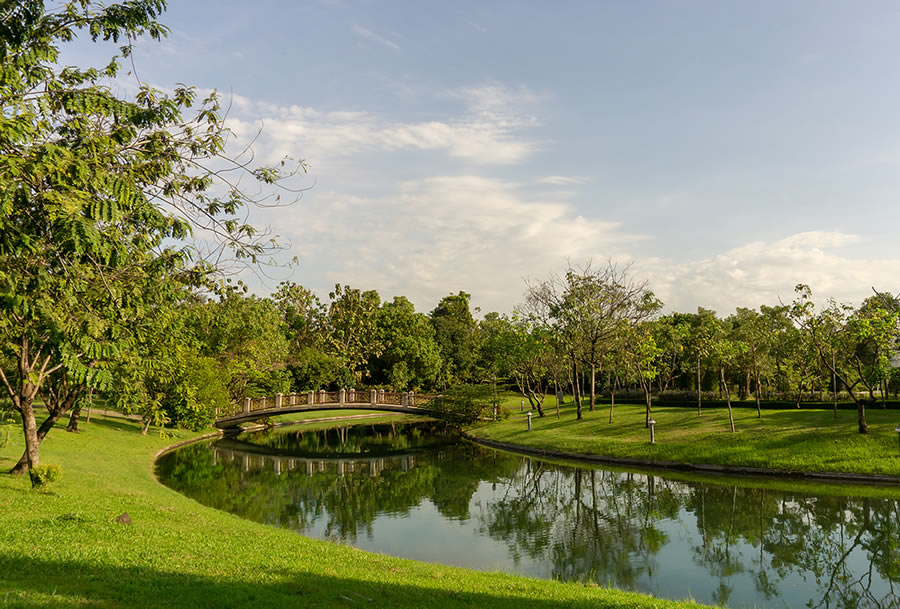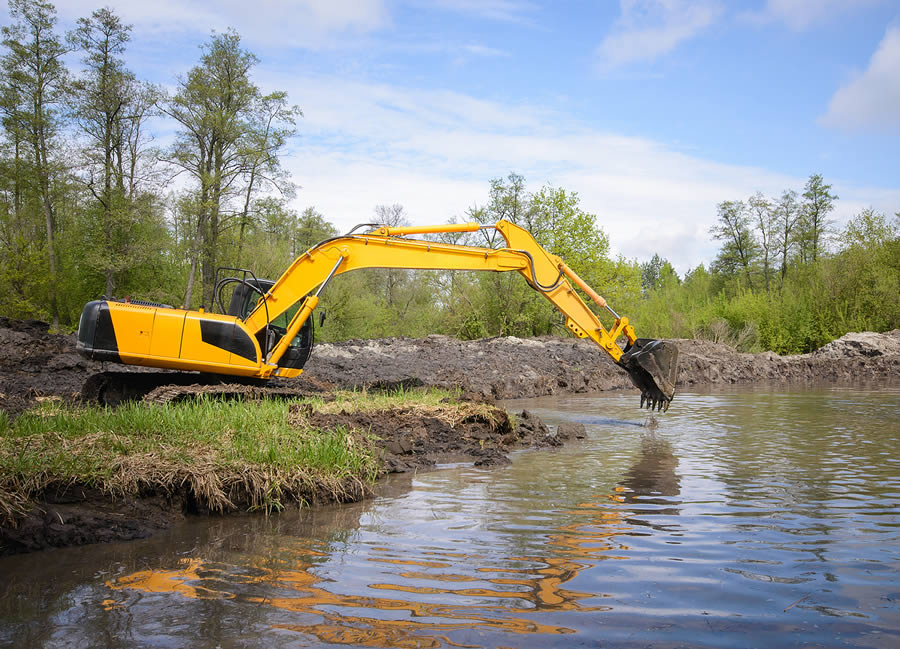
Retention ponds are silent and often unnoticed heroes of urban development that play a key role in stormwater management by reducing flooding and supporting local ecosystems. It’s important to keep in mind, however, that the maintenance practices employed for these man-made water bodies can profoundly influence their functionality and long-term health. Property owners who are struggling with runoff issues will often turn to a retention pond maintenance company in Gwinnett County to get the proper care they need. If you need help handling your stormwater pond, call Aquatic Restoration today. Our team offers a variety of essential services including retention pond maintenance in Gwinnett County, Georgia.
Retention ponds serve more than their primary flood-preventing purpose. They are the bustling hubs of local ecosystems, providing habitats for a variety of species, including birds, amphibians, fish, and insects. These ponds mirror natural water bodies, offering resources for survival and reproduction. The plants that sometimes call retention ponds home, such as cattails and rushes, form vital habitats for various species. The presence of these creatures contributes to a balanced ecosystem, with each organism playing a part in the food chain.
Maintenance practices, like pond dredging, vegetation control, and trash removal, are necessary to preserve the functionality of retention ponds. However, they should be carried out with intention by someone with training and experience. This will ensure that processes like dredging and vegetation control are performed with awareness of the long-term health of the pond.
To reduce potential harm and promote healthier ecosystems, pond managers can adopt environmentally friendly maintenance practices. For instance, using native plant species for erosion control not only sustains the pond's structural integrity but also encourages local biodiversity. Opting for manual or mechanical removal of invasive plants or introducing plant-eating species can be a safer, more eco-friendly option than other alternatives. Another important practice involves regular monitoring of water quality. Factors such as pH, temperature, and levels of nutrients and pollutants can significantly impact the health of aquatic species. Regular monitoring allows for early detection of potential issues and timely intervention.

Incorporating features that mimic natural water bodies, such as varying water depths, gentle slopes, and a mix of aquatic and semi-aquatic plants, can make the ponds more inviting for wildlife. For instance, installing bird boxes and bat houses around the pond can encourage these species to inhabit the area. Submerged and floating structures can provide cover and breeding grounds for fish and amphibians. However, it's essential to understand that enhancing habitats also presents challenges. Increased wildlife populations may lead to more maintenance demands. For instance, goose droppings can negatively impact water quality, necessitating more frequent cleanups. Nonetheless, the benefits can sometimes outweigh these challenges.
Are you looking for more environmentally friendly methods to manage your retention pond issues? If so, then it may be time to invest in professional services from a reliable retention pond maintenance company in Gwinnett County, Georgia. Call the team at Aquatic Restoration today. Our knowledgeable staff can address any questions or concerns you might have and can also schedule an appointment for your stormwater pond maintenance or restoration service.
Mosquitoes go hand in hand with lakes and ponds because they provide an ideal…
Read MoreLake dredging is an integral part of restoring waterways and improving their overall health. This…
Read MoreThere’s no such thing as a maintenance-free retention pond, as much as we’d like…
Read MoreLake and pond dredging is an essential maintenance task that helps to improve water…
Read More